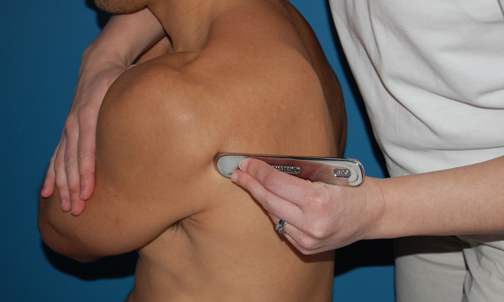 Tendon injuries are mostly caused by strains which occur when a tendon gets stretched further than its capacity. While most tendon injuries usually occur near joints, the elbow joints and the heel are the two areas mostly affected by this type of injury. Other areas where a tendon injury may occur are the shoulder, ankle, and knee. Although a tendon injury may seem to occur suddenly, the injury is usually the result of several micro tears to the tendon that have occurred over time.
Tendon injuries are mostly caused by strains which occur when a tendon gets stretched further than its capacity. While most tendon injuries usually occur near joints, the elbow joints and the heel are the two areas mostly affected by this type of injury. Other areas where a tendon injury may occur are the shoulder, ankle, and knee. Although a tendon injury may seem to occur suddenly, the injury is usually the result of several micro tears to the tendon that have occurred over time.
A tendon is a structure that attaches muscle to bone. During any muscular activity, the pressure created by the muscle is first conveyed to the tendon, and then to the bone to cause movement.
There are two common types of tendon injuries:
- Tendinitis - This is where the tendon gets inflamed.
- Tendinosis - This is where small tears have occurred in the tissue around and inside the tendon due to overuse.
The common term that refers to both types of injuries is tendinopathy.
Causes of Tendon Injury
While anyone can suffer from a tendon injury, people who perform the same motion over and over again such as running, tennis, swimming and other activities that require continuous repetition are more susceptible to this type of injury. The repeated motion causes the tendon to weaken and become more prone to injury. A tendon injury can also occur suddenly due to direct trauma on the tendon. Tendon injuries can also be caused by old age.
Symptoms of Tendon Injury
A tendon injury usually cause stiffness, pain, and reduced strength in the injured area. When there is inflammation, the area will be swollen and may also be warm, tender, and red. The pain may increase whenever you use the injured tendon. You may experience more stiffness and pain around the injured area at night or in the morning after you wake up. Whenever you use the tendon, you may hear or feel a crunchy sound.
Treatment of Tendon Injuries
Most cases of tendon injuries can be treated at home. Whenever you experience this injury, follow these steps:
- Give plenty of rest to the injured part and keep off any activity that seems to cause the pain.
- To prevent stiffness, perform gentle stretches and range of motion exercises.
- Put cold packs or ice to the injured area for periods of 10 to 15 minutes, and twice every hour, for the initial 72 hours after your injury. Keep using this remedy for as long as it is effective.
- To relieve pain, you can take over-the-counter drugs such as acetaminophen, ibuprofen, and naproxen where necessary.
If the above remedies fail to work, your doctor may recommend physical therapy. Cross friction massage can help with stimulating repair and accelerate recovery. However, if the tendon injury happens to be long-lasting and severe, your doctor may use a brace, splint or cast to immobilize the tendon.
After your tendon injury heals, you may resume your activity but do not start at the level you were before the injury. Take things easy and work towards your earlier level gradually. Make sure you warm up before and do gentle stretches afterwards.
Remember that it may take a while for your injury to heal, so be patient, and stick to the treatment; because if you begin using the tendon too soon, it may result in further damage.